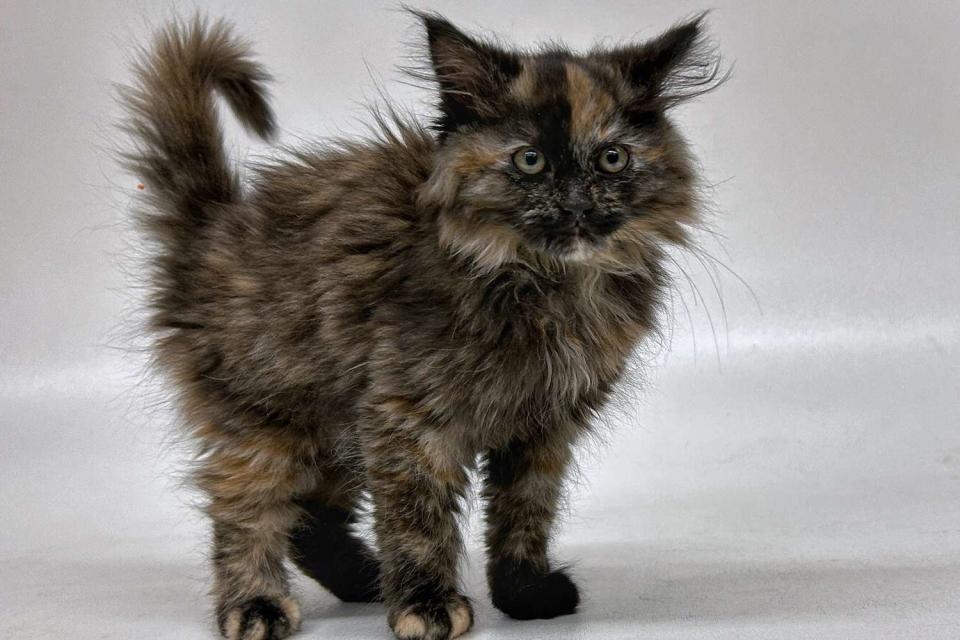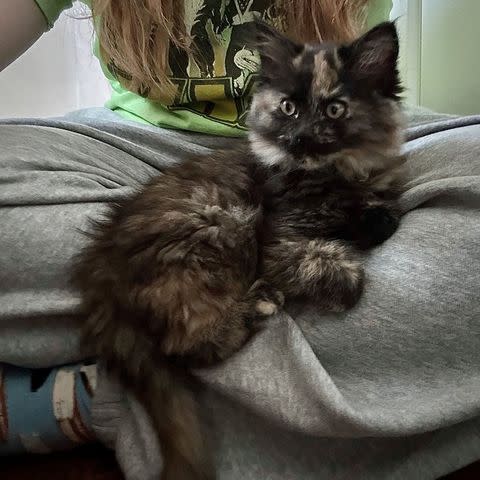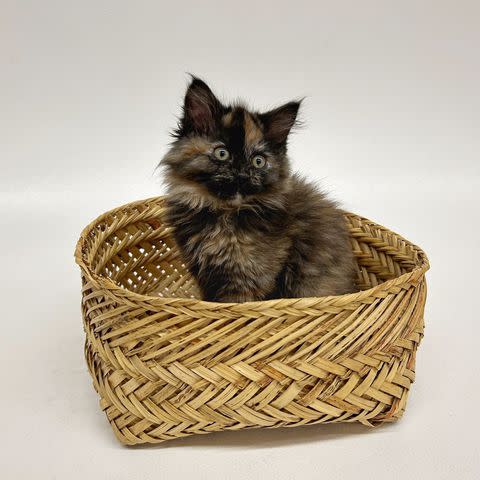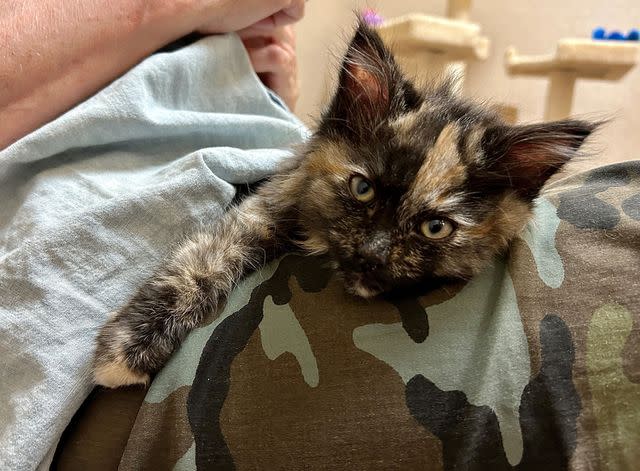Oregon Shelter Takes in 'Rare' Intersex Tortoiseshell Kitten: 'Like Spotting a Unicorn'
"They always talked about how rare male tortoiseshells are back in school, but seeing one in person is something else," a shelter employee said of the feline

Humane Society of Central Oregon
Cinder the kittenA rare kitten ended up at an Oregon humane society — and employees compared the occurrence to a unicorn sighting!
The "tiny," one-pound kitten, named Cinder, is a "male tortoiseshell cat that is also a hermaphrodite," the Humane Society of Central Oregon (HSCO) shared in a Facebook post, along with photos of the intersex feline.
The non-profit said Cinder's "striking" coloring and pattern are typically found only in female cats. His hermaphroditis is more accurately described as a "feline disorder of sexual development," or DSD.
Related: New 'Salty Licorice' Cat Coat Pattern Linked to Genetic Mutation, Study Finds
Even labeling the kitten a male is "tough," according to Crystal Bloodworth, a medical director at the HSCO who has performed "tens of thousands of cat surgeries" throughout her career — and "only seen one other male calico and only a handful of true hermaphrodite animals."
However, the director noted, "With the binary nature of animals and people's perception of animals, we chose male."

Humane Society of Central Oregon
Cinder the kittenAfter arriving at the humane society in late April, Cinder was classified as a female, named Cindi, and taken to a foster home, where he was "a typical loving, adventuresome, and playful kitten."
Five weeks later, the feline arrived at the clinic for spay surgery, during which Bloodworth discovered the animal did not have a uterus or ovaries. The HSCO veterinary team found and removed two testicles, and after the surgery, Cindi became Cinder.
Related: Cat Missing for 12 Years Reunites with Owner After Friend Recognizes Photo of the Pet on Facebook
The shelter's staff believes Cinder is "very likely a three sex chromosome cat XXY," because "the two X chromosomes allow for the tortoiseshell coloring and the Y chromosome allows for the testicles," the HSCO said.

Humane Society of Central Oregon
Cinder the kittenBloodworth said that if a vet examined Cinder as an adult, the feline would likely be considered female "because the external genitalia looks profoundly like a female, not to mention the fact that it is a tortoiseshell cat," per the organization.
"In the kitten, it did not have a uterus or ovaries, did have testicles, and has what looks like a vulva," Bloodworth added.
Never miss a story — sign up for PEOPLE's free daily newsletter to stay up-to-date on the best of what PEOPLE has to offer, from juicy celebrity news to compelling human interest stories.
HSCO clinic manager Bailey Shelton said that Cinder's arrival — the kitten was part of an owner-relinquished litter — was "like spotting a unicorn!"

Humane Society of Central Oregon
Cinder the kitten"Even though I've only been in the veterinary field for nine years, this very well could be a once-in-a-career moment," she continued. "They always talked about how rare male tortoiseshells are back in school, but seeing one in person is something else."
Another HSCO employee, Annie Pulzone, echoed Shelton's reaction, adding that she has only seen one other XXY cat during her 10-year career. "It is always fun to see these types of animals in one's career," Pulzone said, "because they are so rare."
According to a release from HSCO obtained by PEOPLE, a family adopted Cinder on June 7. The kitten's new home includes an aspiring veterinarian. The adopters told the shelter that Cinder was “funny, quirky, and sweet" and is "full of male energy, with a tortoiseshell attitude."
For more People news, make sure to sign up for our newsletter!
Read the original article on People.


